- Home
- slideshows
- miscellaneous
- I flew on Honda's new $5.25 million private jet to see if it's faster, quieter, and more luxurious than before. Here's the verdict.
I flew on Honda's new $5.25 million private jet to see if it's faster, quieter, and more luxurious than before. Here's the verdict.
Recently, we made our down to Greensboro, North Carolina to visit the headquarters of the Honda Aircraft Corporation.

Waiting for us on the apron was a new HondaJet Elite.
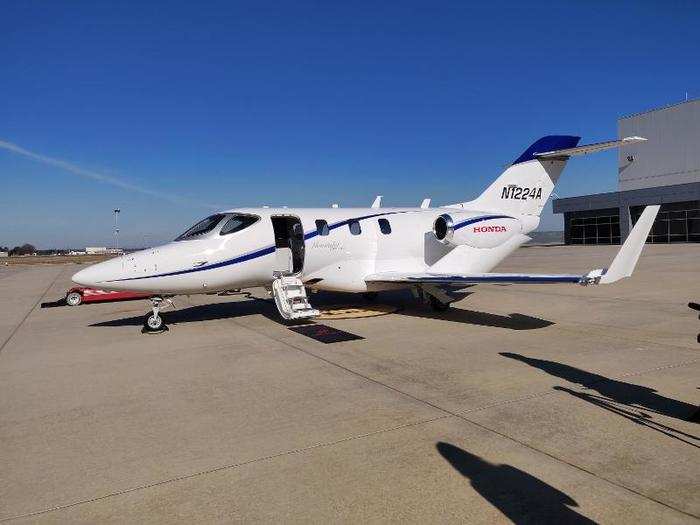
We had a chance to checkout to the original HondaJet back in 2017 and it won us over with its charm, performance, and innovative features.
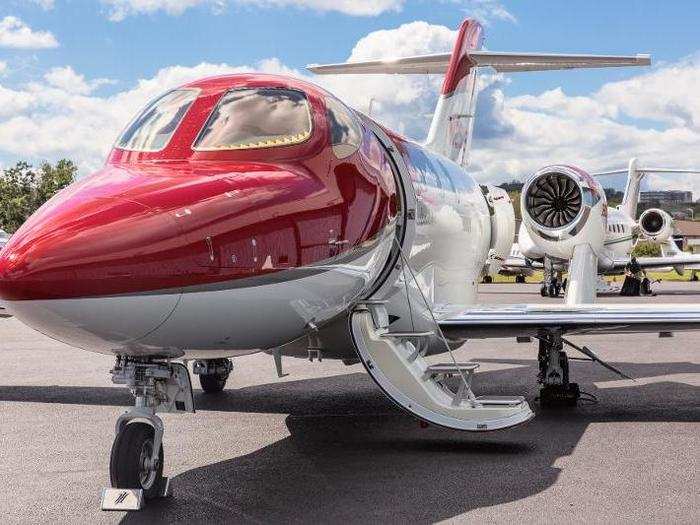
Let's see how Honda has updated its latest private jet.
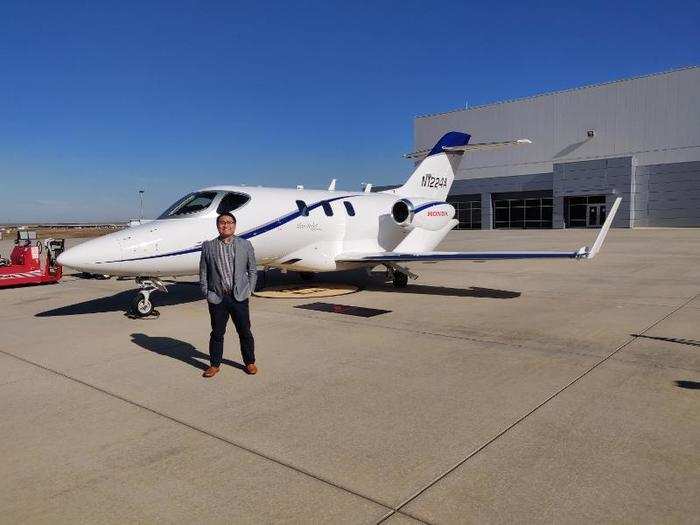
HondaJet's overall dimensions remain unchanged at 43 feet long and 15 feet tall with a 40-foot wingspan.
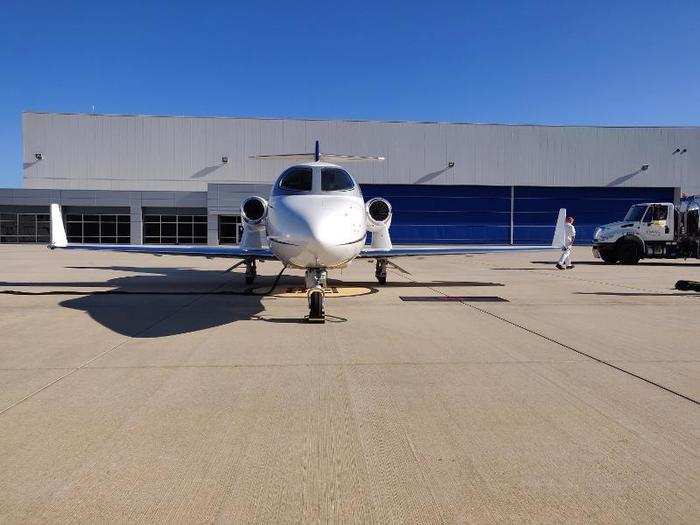
The HondaJet's signature nose design also remains.
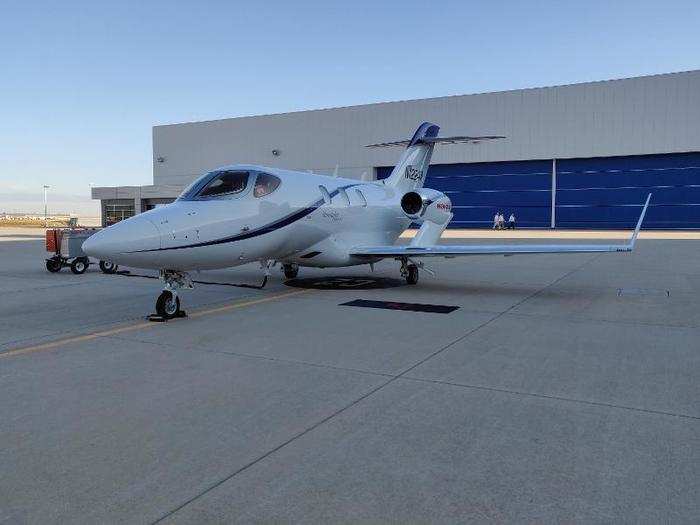
According to Fujino, the nose of the plane was inspired by a pair of Salvatore Ferragamo high heels he encountered at a duty-free shop while on vacation in Hawaii.
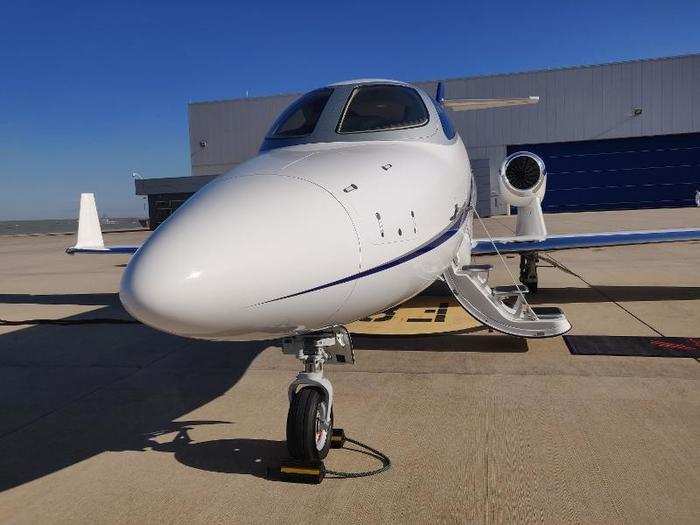
The HondaJet HF120 turbofan engines are also back for another tour of duty.
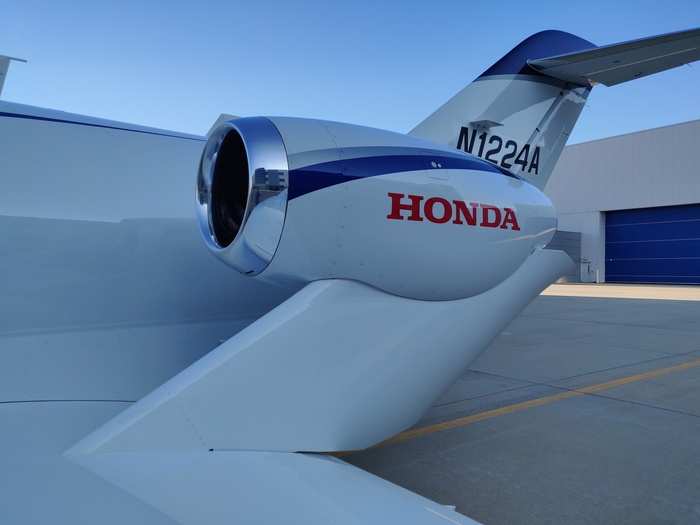
Output from the General Electric/Honda engines is unchanged at a stout of 2050 pounds of thrust. However, HondaJet retuned the acoustic qualities of the engine to make it quieter.
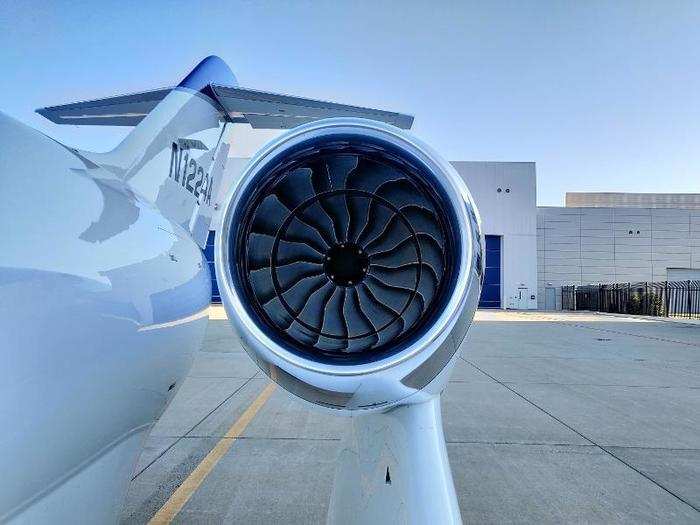
Before you ask, it doesn't have VTEC.
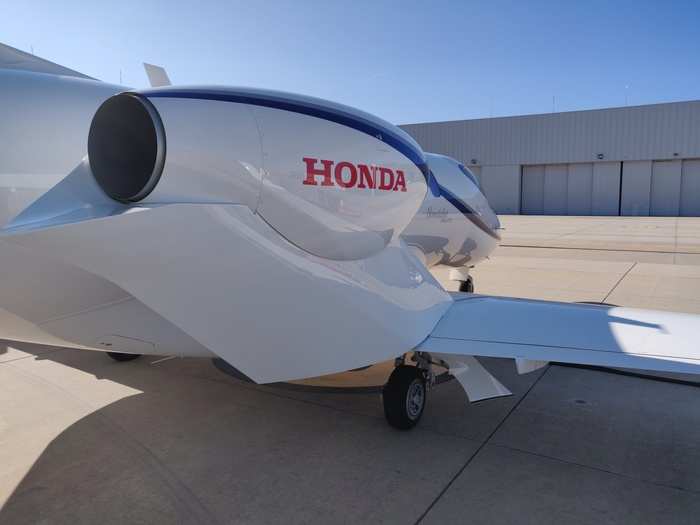
VTEC, Honda's world-famous Variable Valve Timing and Lift Electronic Control system, is found in many of its car engines. The system, which allows the engine to be fuel-efficient at low RPMs while delivering an extra jolt of power at high RPMs, has become a pop-culture icon among car enthusiasts.
What really makes this the HondaJet stand out is the way it mount its engines.
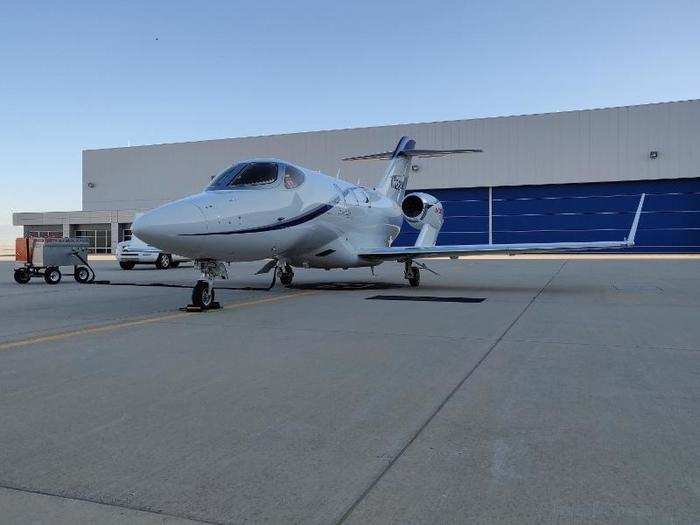
Instead of on the main fuselage, the HondaJet's engines are on pylons above each wing.
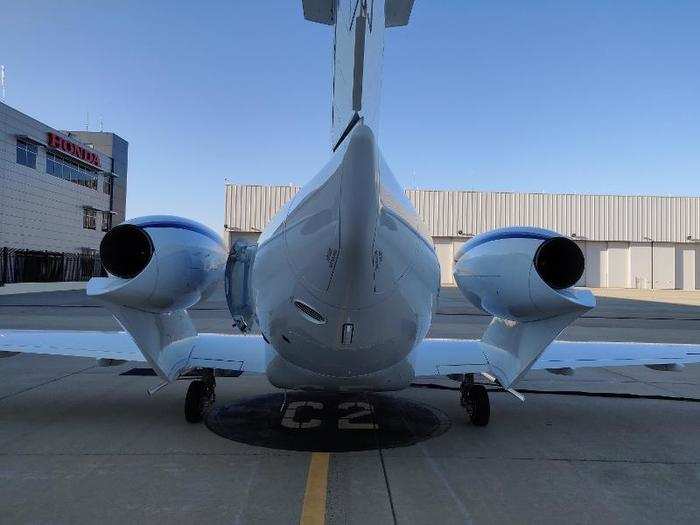
According to Honda, this design not only contributes to a roomier and quieter cabin.
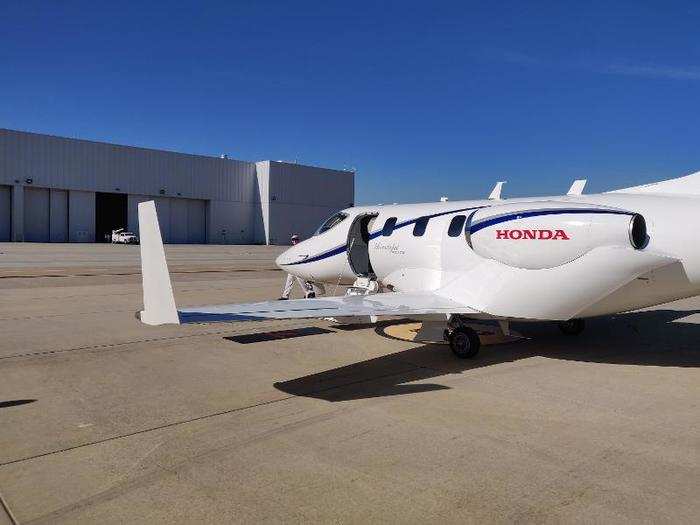
Honda cleaned up the design of the wings and...
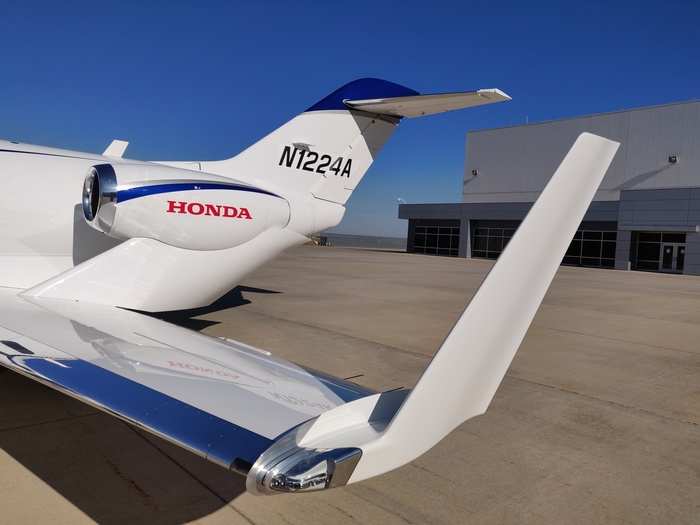
... Tweaked T-tail for greater efficiency.
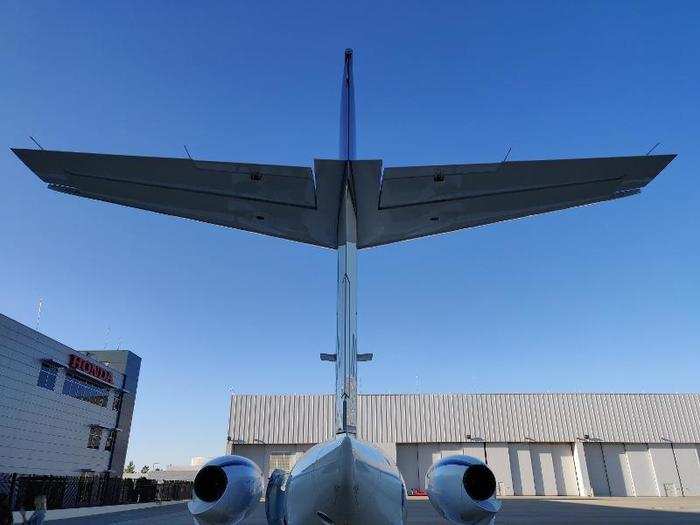
As a result, the HondaJet Elite needs just 3,491 feet of runway to take off and can climb at a rate of 4,100 feet per minute.
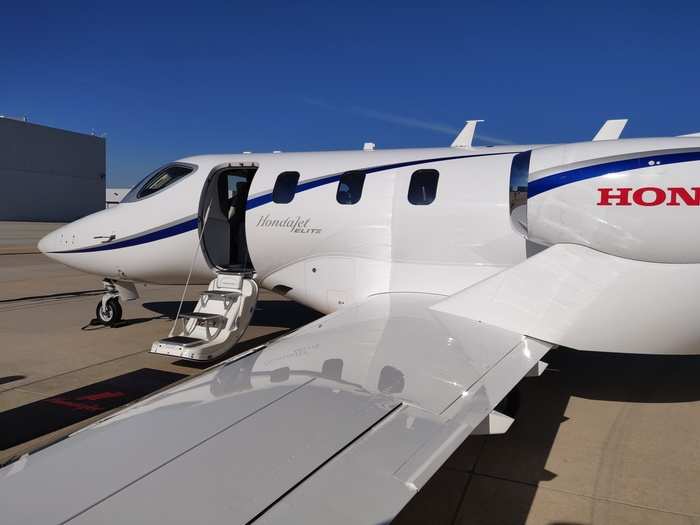
The HondaJet Elite boasts a 57 cubic-foot trunk...
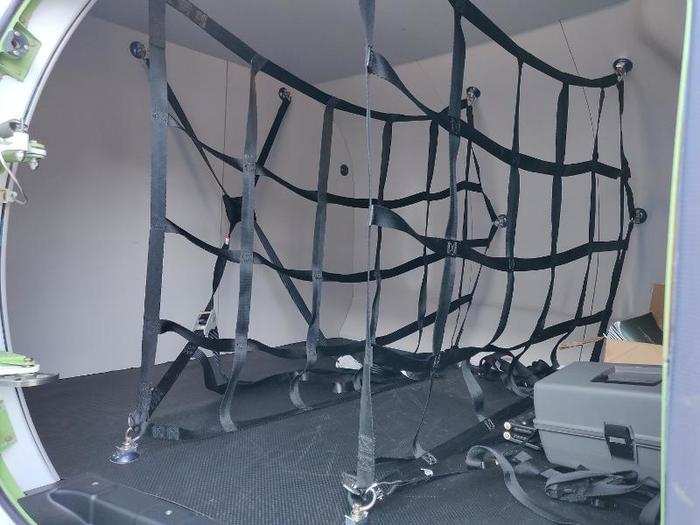
... Immediately aft of the passenger cabin.
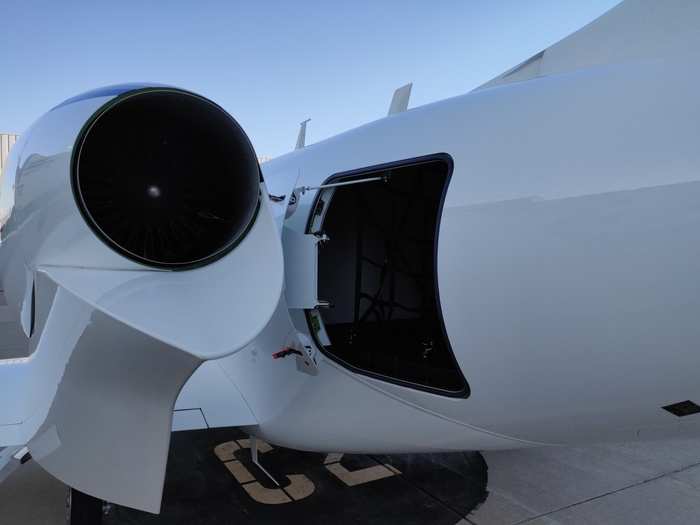
There's also a nine-cubic foot frunk in the nose.
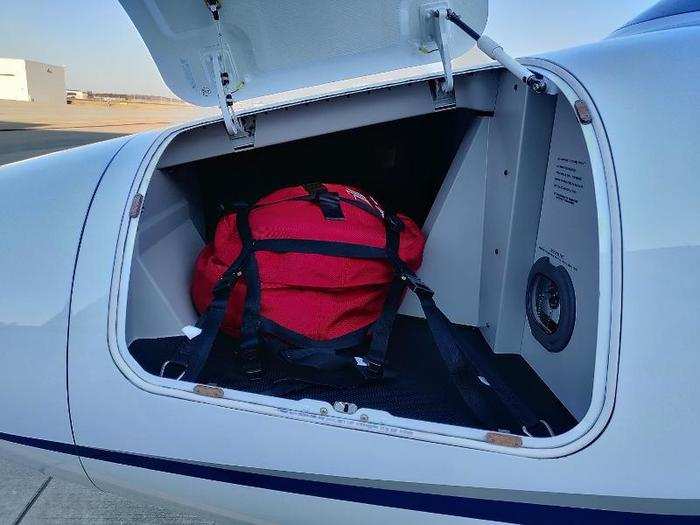
Unlike many jets, the Honda boasts a single fuel filler located in the aft of the plane by the right engine.
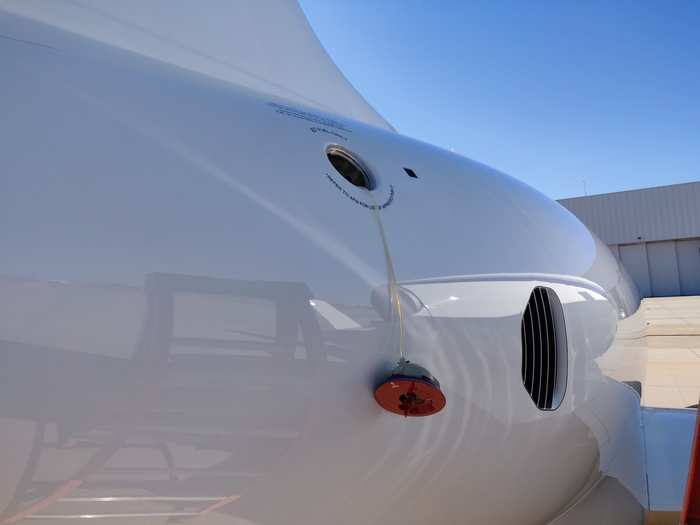
Filler her up!
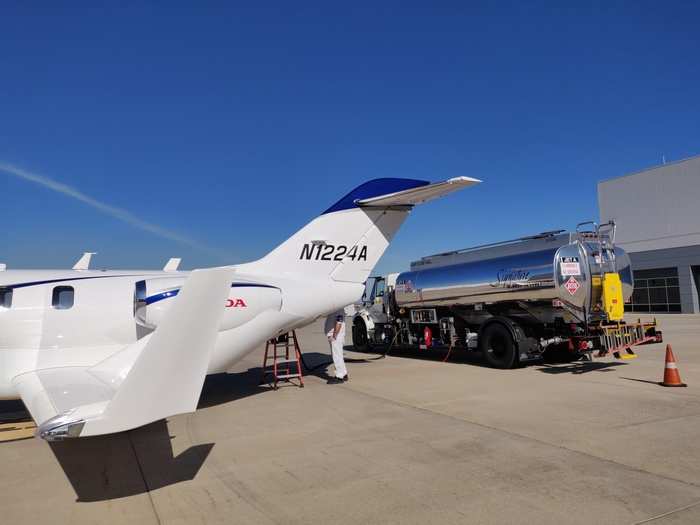
The cabin is made of a carbon fiber epoxy composite that is designed to be lighter and stronger than traditional aluminum construction.
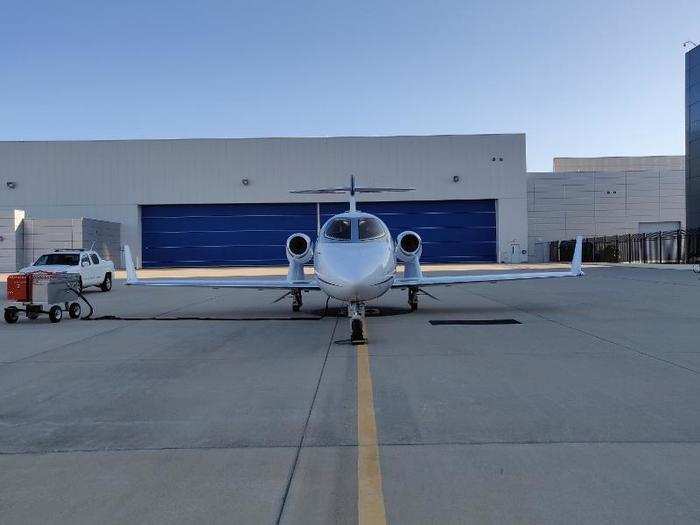
Let's step on board!
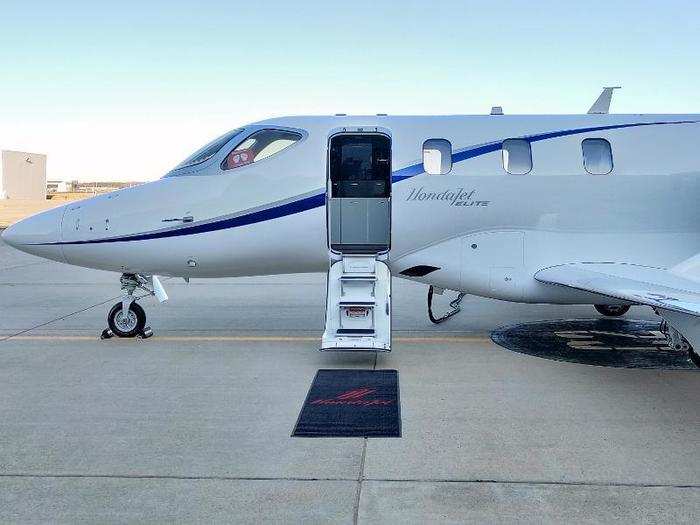
Inside, the cabin is 17.8 feet long, 5 feet wide, and 4.8 feet tall. Which means adults will have to duck.
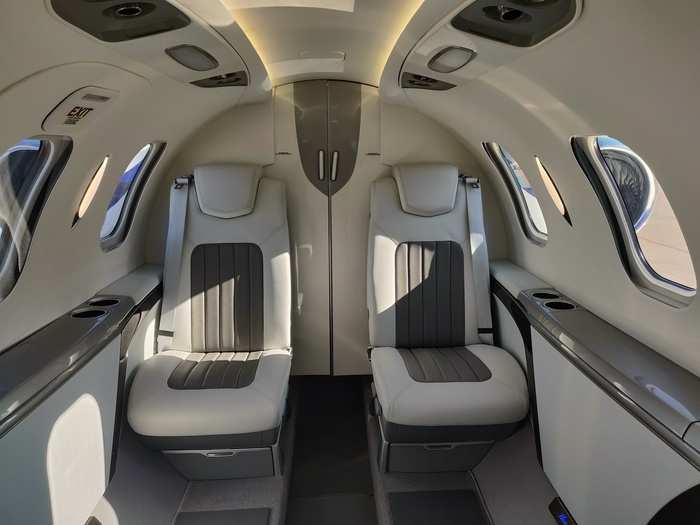
The HondaJet's main cabin seats four passengers in a club setup. The seats sit on a floating ball-joint system.
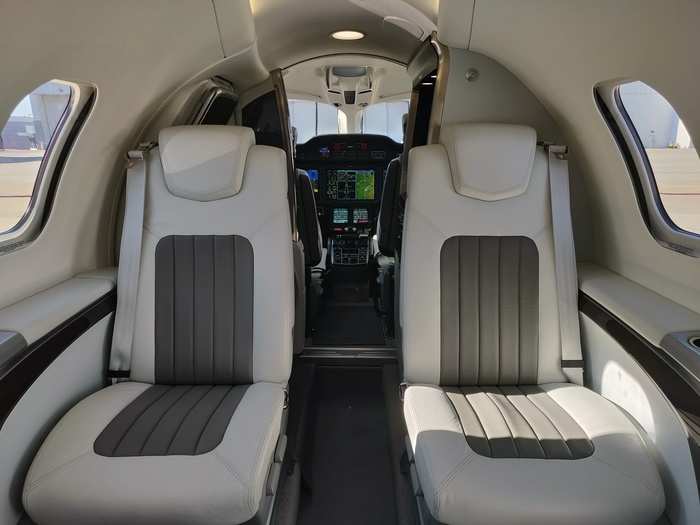
As a result, the seats can move forward, backward, and to the side.
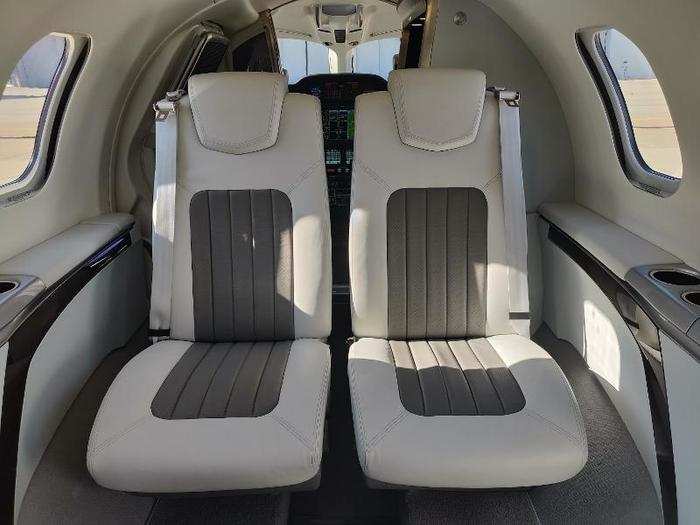
The original HondaJet came equipped with a seat facing the door.
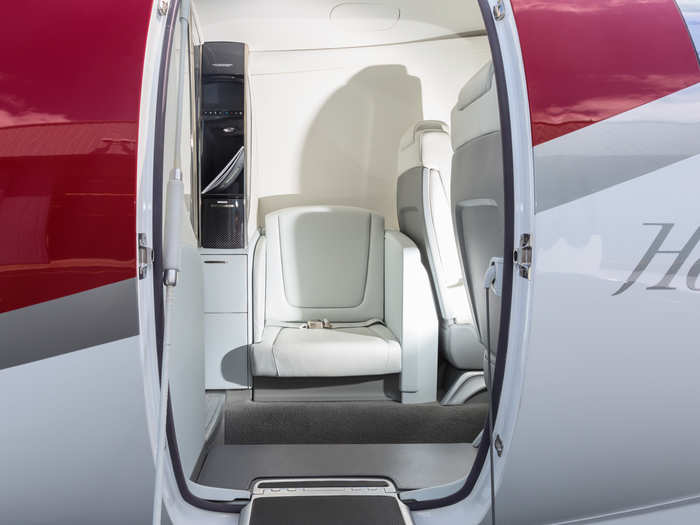
In the Elite, that seat has been replaced by a stylish, carbon fiber wrapped galley.
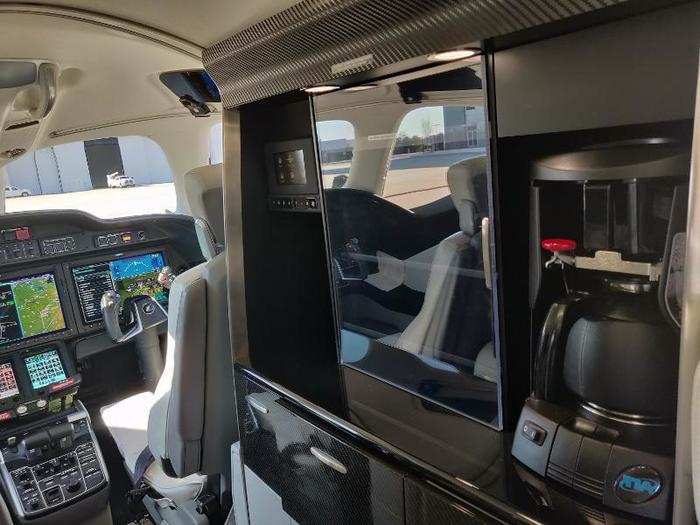
The keep the plane's seating capacity unchanged,...
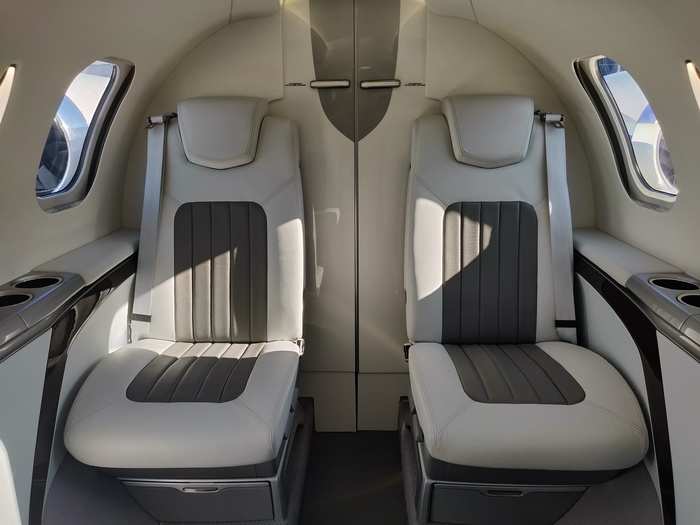
... The HondaJet Elite comes with a seat belt-equipped with lavatory. This way, a passenger can sit here during flight.
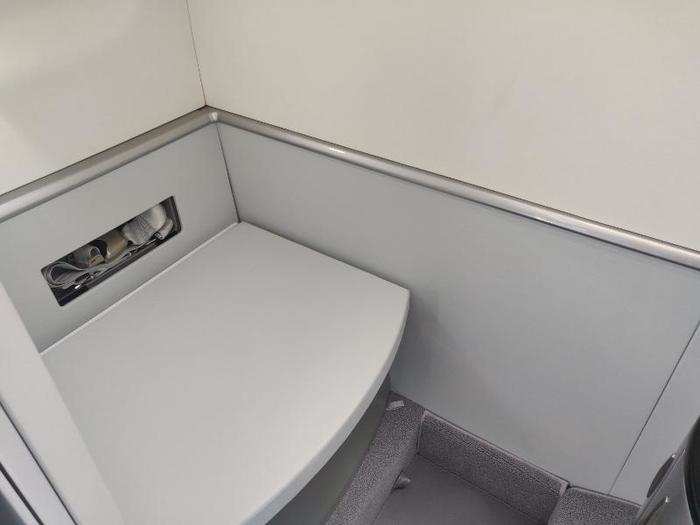
Under the seat, is a fully functional toilet.
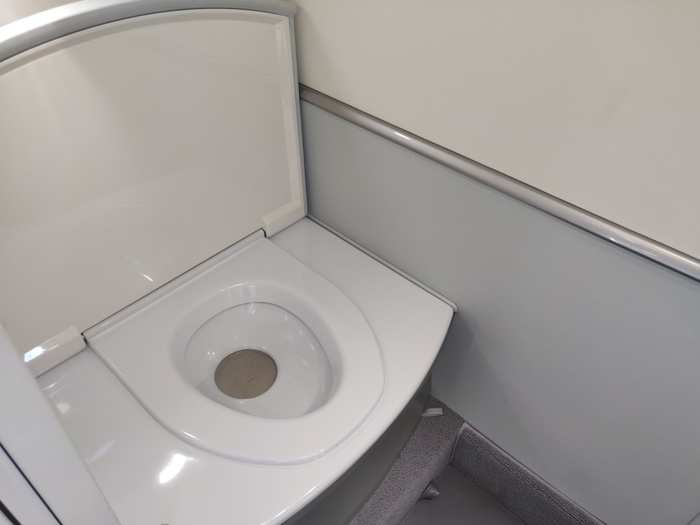
Across from the toilet is a cobalt wash basin.
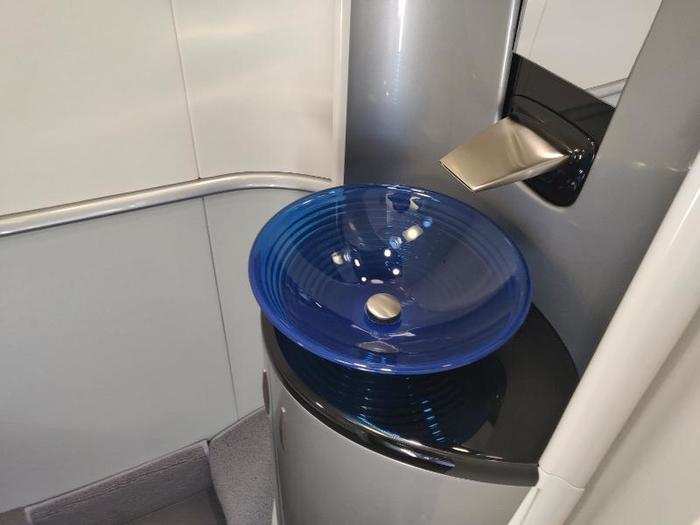
The lavatory comes with a pair of small skylights.
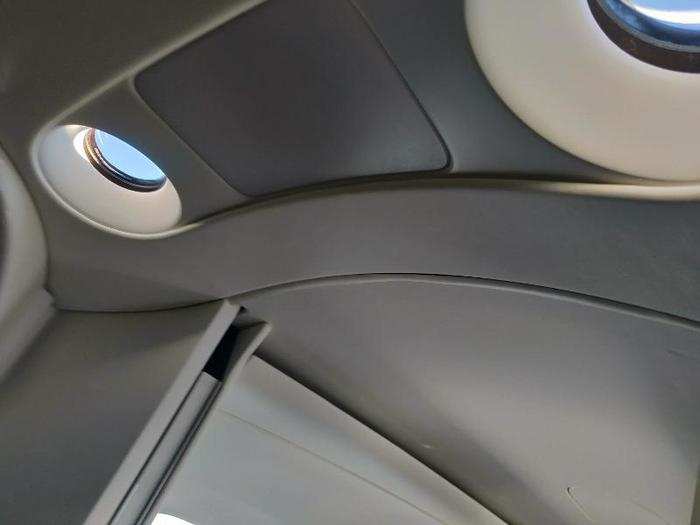
Looking closely and you can see the carbon weave of the fuselage.
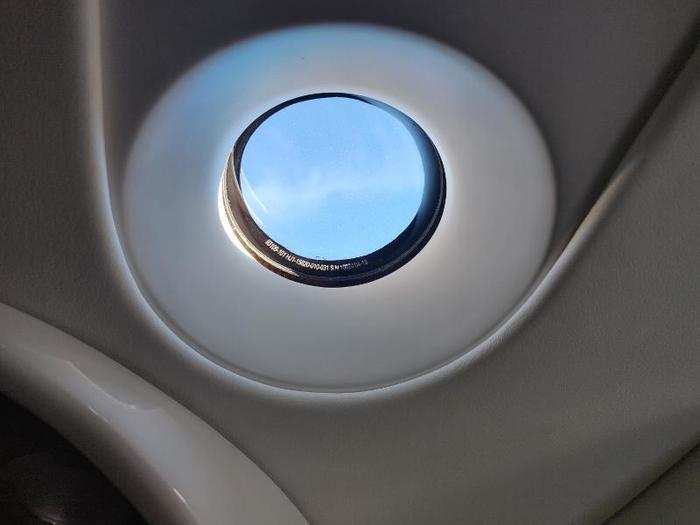
A sixth passenger can sit in up in the cockpit to the right of the captain.
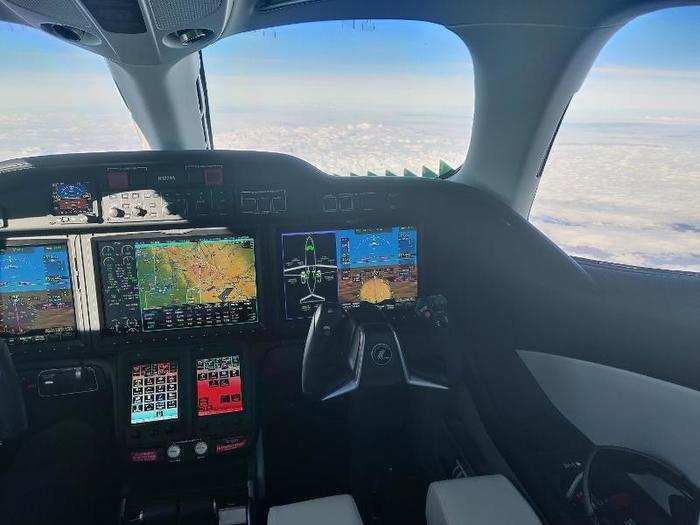
That's because the HondaJet is designed for single-pilot operation.
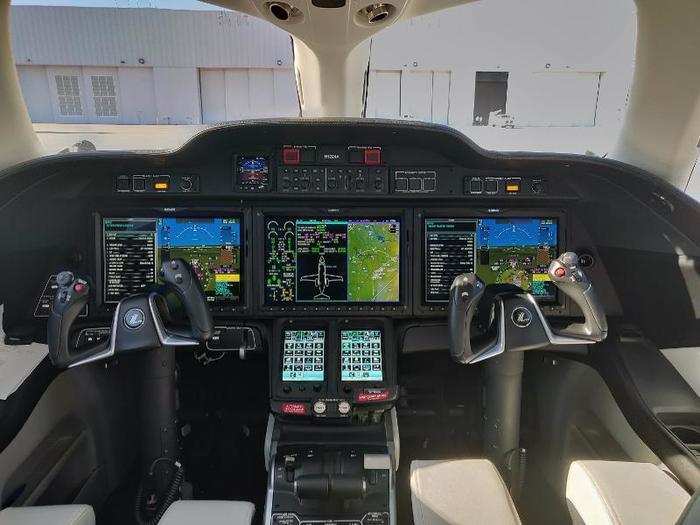
In flight, the HondaJet's cabin is impressively quiet. The experience was even more hushed than the original version.
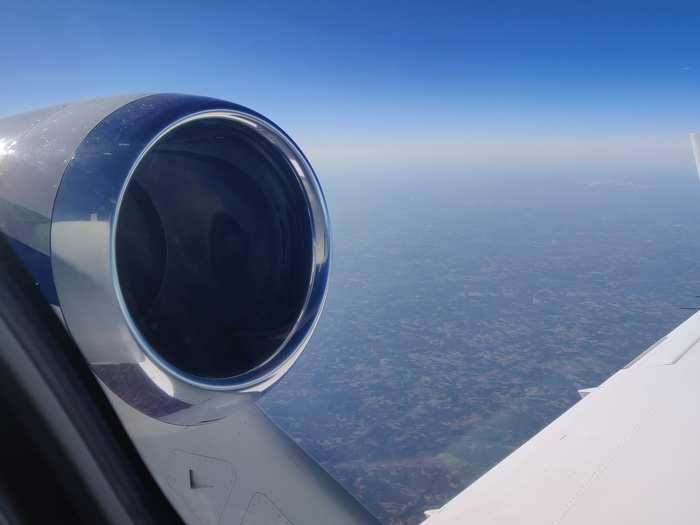
At 30,000 feet, the HondaJet can cruise at speeds of up to 486 mph.
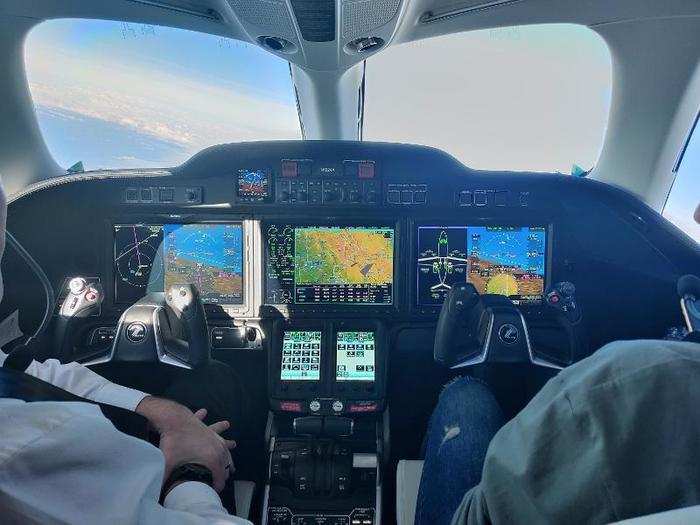
The HondaJet Elite boasts a range of more than 1,650 miles. That's up from the 1,400-mile range of the original model thanks to the addition of an extra fuel tank.
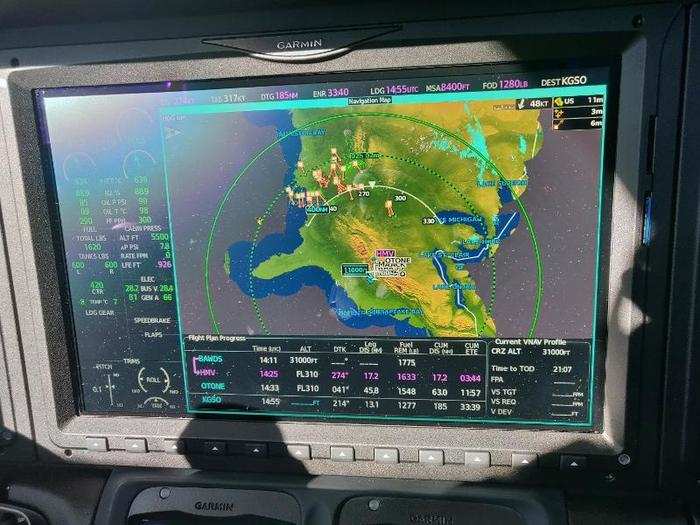
The HondaJet Elite is equipped with an updated version of the Garmin G3000 avionics suite found in the original variant. The cockpit features three 14.1-inch high definition displays along with...
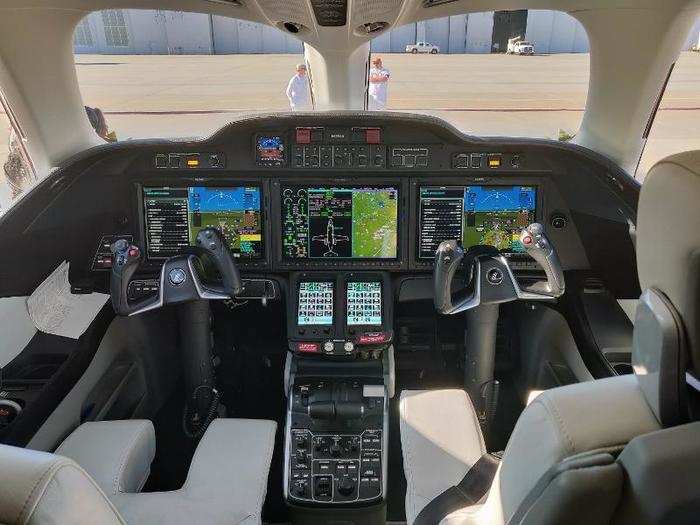
... A pair of 5.7-inch touchscreens.
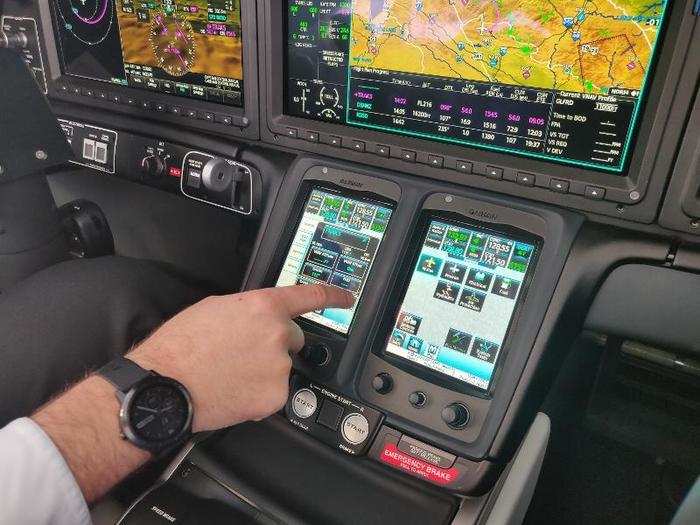
The cockpit and its controls are designed to be clear and concise.
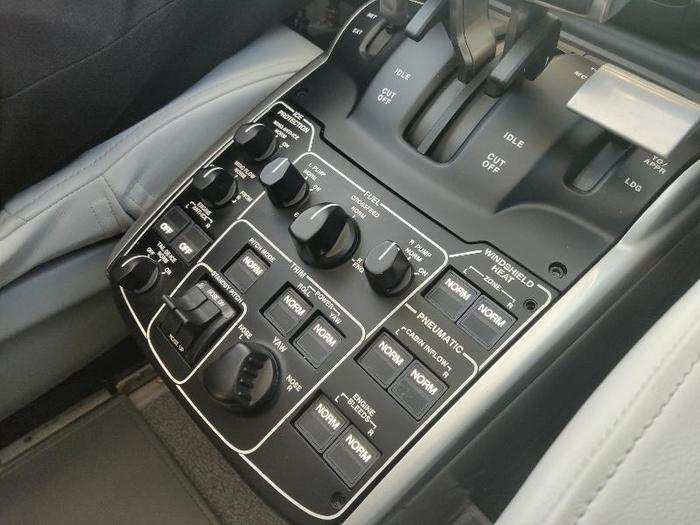
Check out the push-button starters. Just like in your Honda Accord.
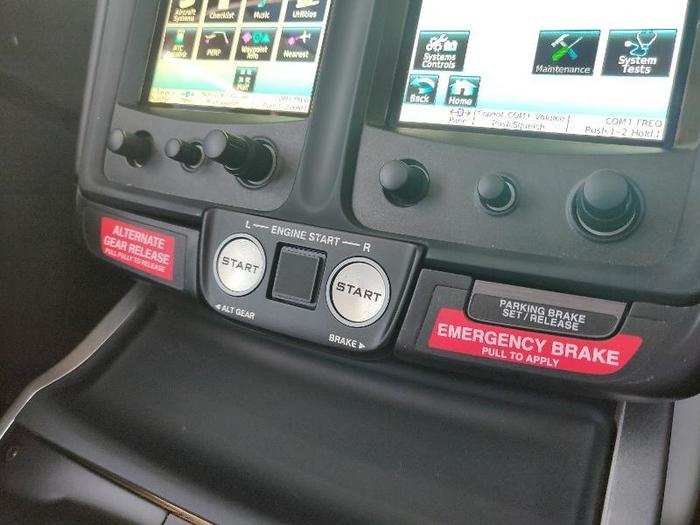
The HondaJet uses a yoke instead of the side stick.
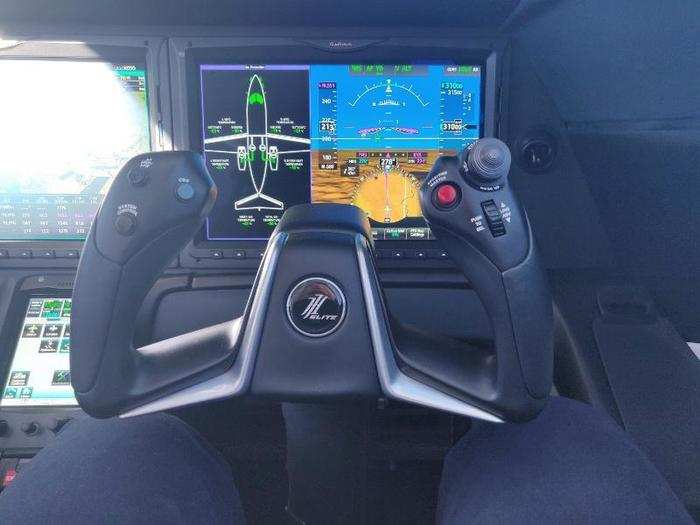
To the right of the first officer is an emergency oxygen mask.
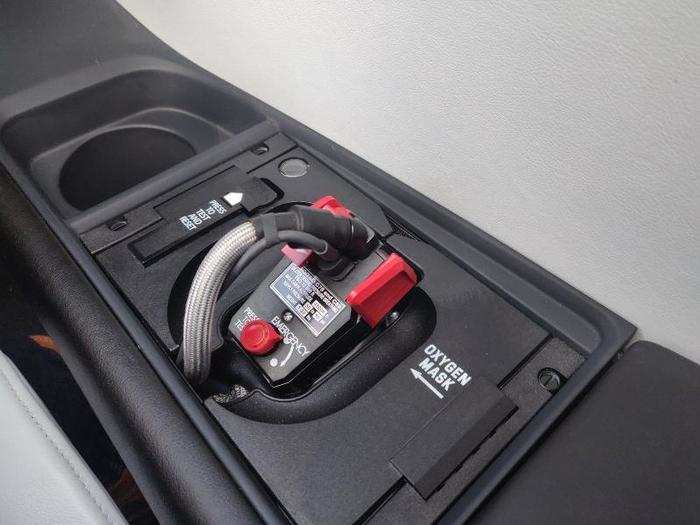
The view from the first officer's seat is stunning.
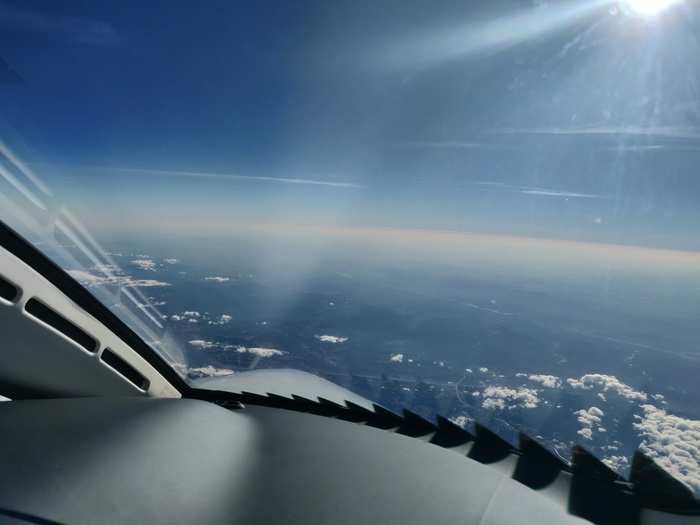
The view from the back of the plane is equally breathtaking. The large windows flood the cabin with natural light.
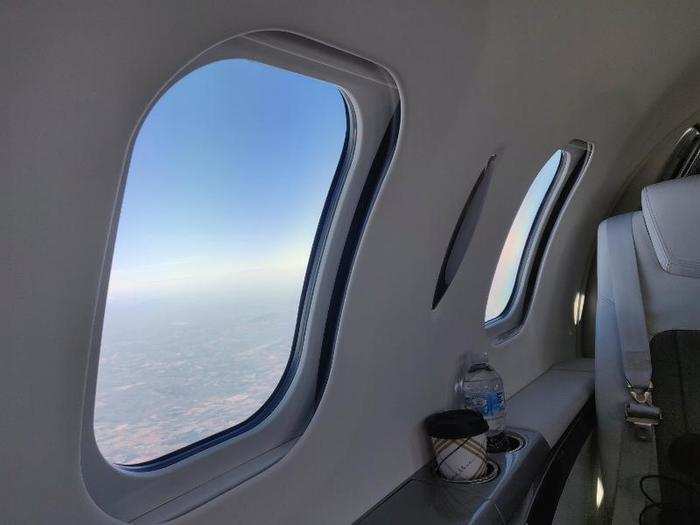
The plane does have sunshades. They can be controlled using your smartphone or by accessing a built-in touchpad.
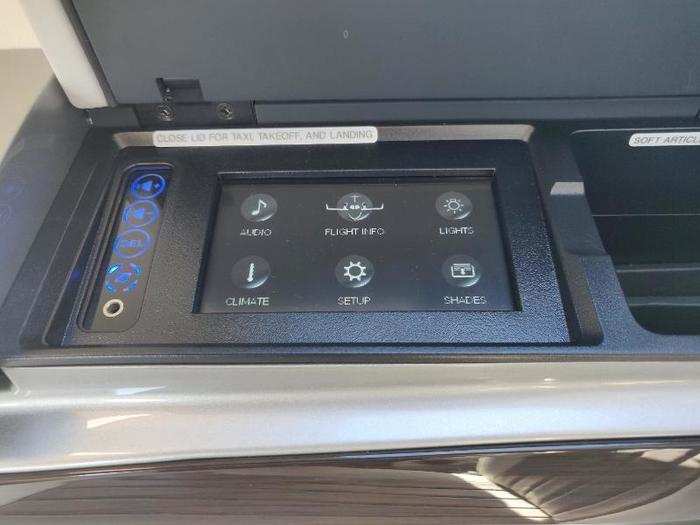
The touchpad also gives you access to climate control and...
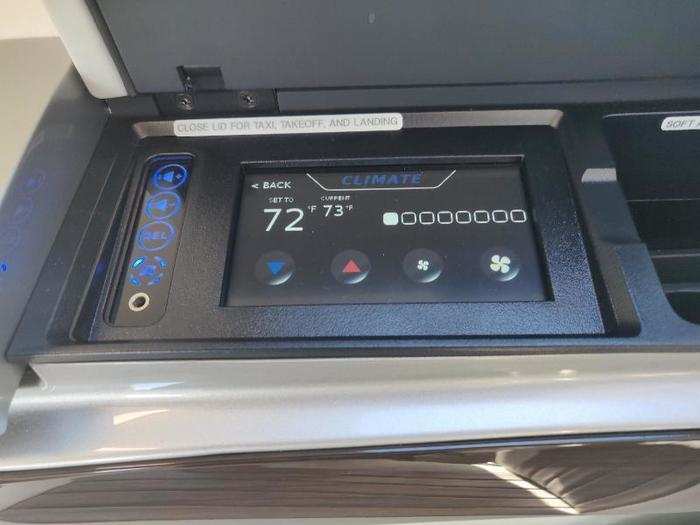
... The sound system.
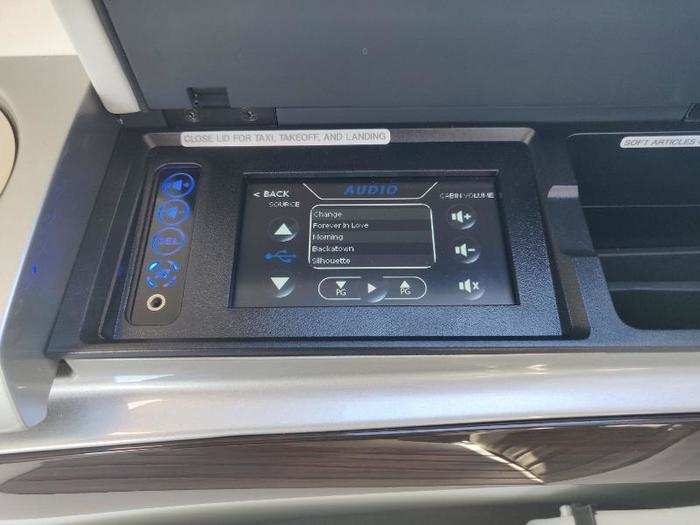
Speaking of the stereo, the HondaJet does not use traditional speakers. Instead, its cabin is surrounded by a couple dozen transducers that vibrate inside the plane's leather-lined interior walls. As a result, the music feels like it envelopes you.
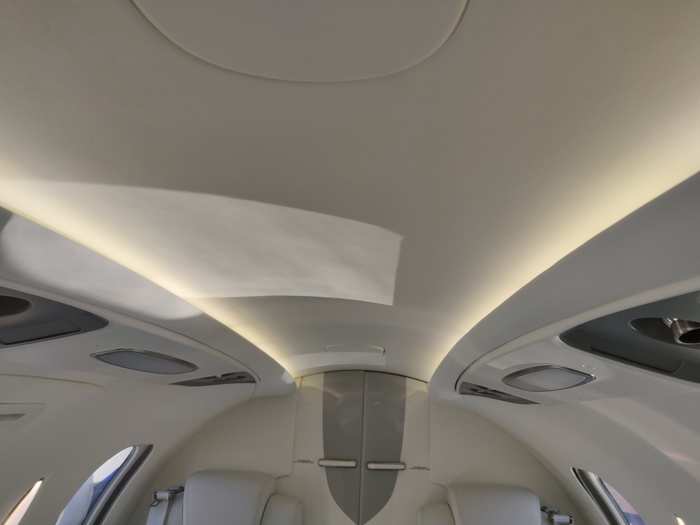
The Honda's jets seats are upholstered in rich leather. They are soft, comfortable, and offer solid bolstering.
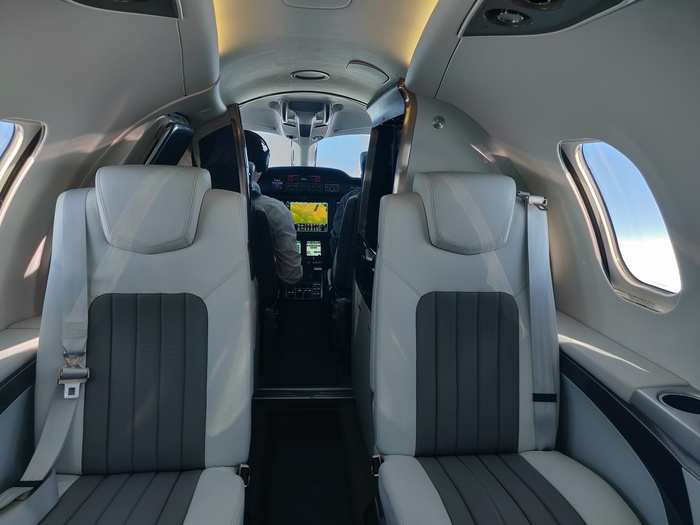
There are retractable tables on either side of the cabin.
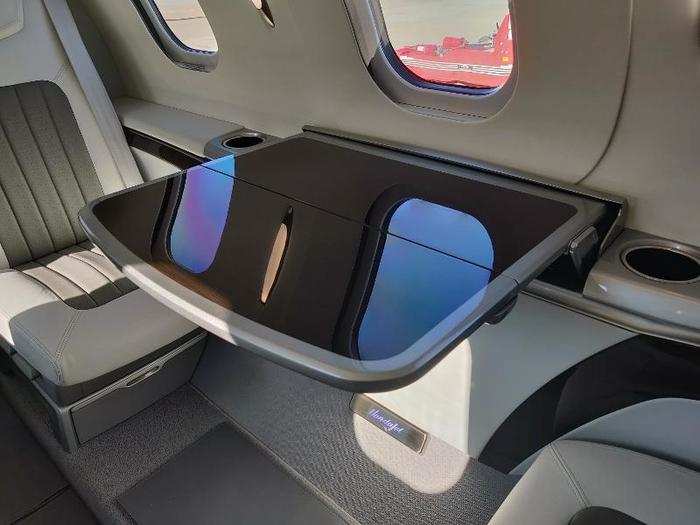
Beneath the tables are lighted HondaJet signs.
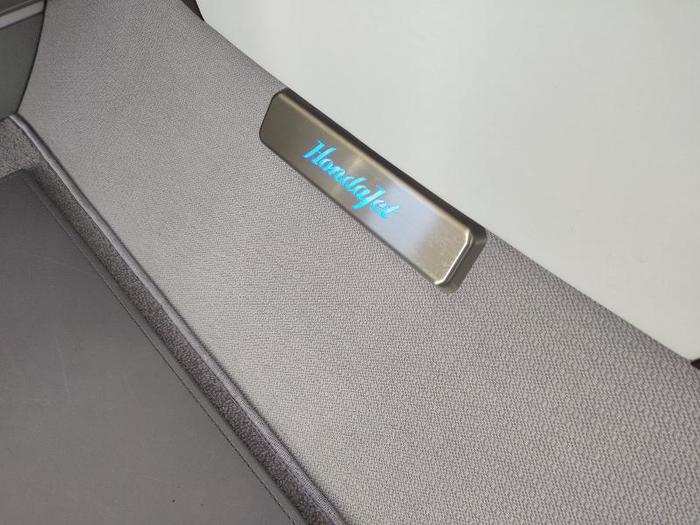
Soon, it was time to head back to Greensboro. Our flight wasn't terribly long, but it was long enough for us to come away impressed by the HondaJet Elite.
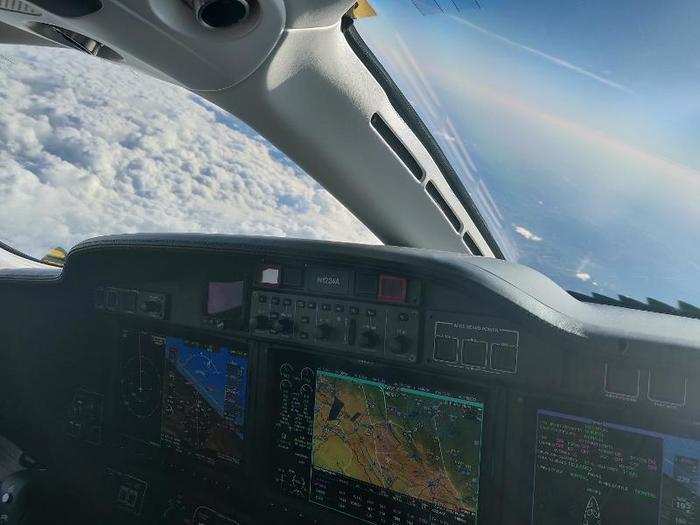
For us, the original HondaJet was a game-changer. With the HondaJet Elite, they've managed to make it faster, quieter, and more luxurious.
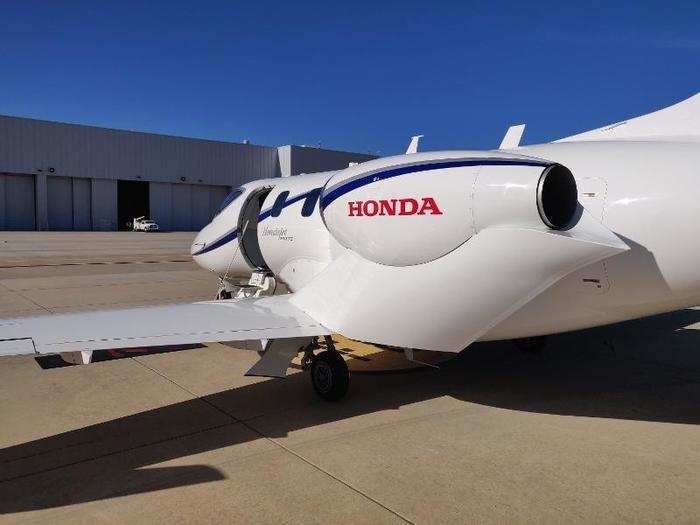
Popular Right Now
Popular Keywords
Advertisement